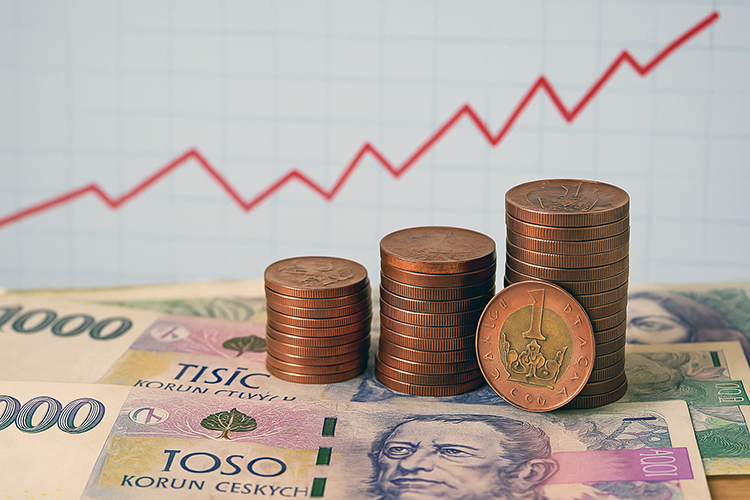Czech Economy Records Strongest Growth in Three Years, but Outlook Remains Mixed
The Czech economy expanded by 2.6 percent year-on-year in the second quarter of 2025, the strongest growth since mid-2022, according to refined figures released by the Czech Statistical Office (ČSÚ). Compared with the first quarter, gross domestic product (GDP) rose by 0.5 percent, an upward revision from earlier estimates.
Statisticians attributed the improvement primarily to household consumption, which has been buoyed by rising real wages, as well as changes in inventories. In contrast, weaker investment and a reduced foreign trade surplus acted as drags on growth.
“The Czech economy performed better than expected in the second quarter,” noted Vladimír Kermiet, Director of the National Accounts Department at ČSÚ. “Real income from employment increased by 4.1 percent year-on-year, and while the savings rate has fallen, it remains above the long-term average.”
Average monthly earnings reached CZK 52,560, rising by 1.4 percent quarter-on-quarter and by 4.1 percent compared to last year. Household consumption per capita increased by 0.8 percent from the previous quarter and by 2.9 percent year-on-year, underlining the role of domestic demand in driving growth.
Despite this momentum, forecasts for the full year remain cautious. The Ministry of Finance expects the economy to grow by 2.1 percent in 2025, while the Czech National Bank (CNB) is more optimistic, projecting an expansion of 2.6 percent. The Confederation of Industry of the Czech Republic, however, cut its own forecast from 2.7 percent to 2.1 percent, citing weaker foreign demand, U.S. trade policy tensions, and a sluggish investment climate.
“Some of the negative expectations at the turn of 2024 and 2025 did not materialise, but the economy is still fragile and vulnerable to external shocks,” said Martin Jahn, vice president of the Confederation. Analysts warn that while consumption and government spending are providing a cushion, business investment remains subdued and is unlikely to contribute significantly to growth until 2026.
International observers echo this cautious optimism. According to bne IntelliNews, the stronger-than-expected Q2 performance “suggests a recovery is underway, but the path ahead will depend heavily on the trajectory of European industry and global trade”【web source†intellinews.com】. Radio Prague similarly reported that the latest data “underscores a modest recovery” but highlighted foreign trade and investment as ongoing weak spots【web source†english.radio.cz】.
Looking ahead, the CNB emphasises that falling inflation, gradual interest rate cuts, and continued wage growth should support domestic demand in the second half of the year. Yet with Germany—the Czech Republic’s main trading partner—still struggling with sluggish growth, the external environment remains a key risk.
For now, the second quarter figures mark a welcome sign of resilience. But with investment lagging and uncertainty high, policymakers and business leaders alike are calling for stable conditions and supportive reforms to sustain the recovery.








